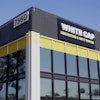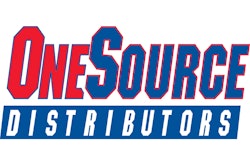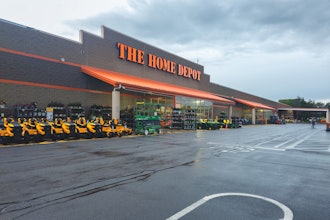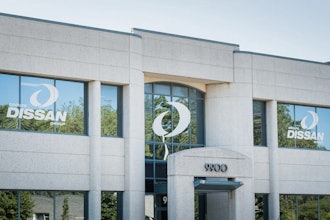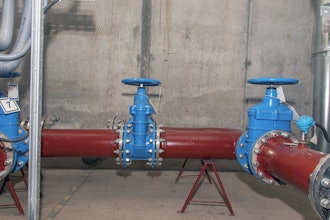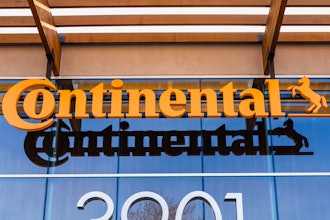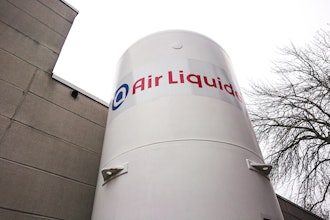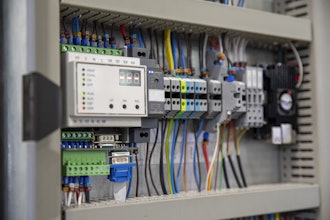NEW YORK (AP) — Evolving shopping habits have forced yet another retailer to think outside of the box.
Staples, the nation's largest "big box" office supply chain, announced Wednesday that it's spending about $6 billion to buy its second-ranked rival, Office Depot.
The acquisition reflects a reversal of fortunes for big-box retailers. Founded in the late 1980s, Staples and Office Depot were among a group of chains led by Wal-Mart that opened thousands of supersized stores during much of the next two decades for shoppers who wanted to buy in bulk.
But shopping patterns changed in recent years as Americans have grown increasingly deal-hungry and comfortable with online shopping. Competition from smaller stores and the rise of online retailers like Amazon.com also have hurt big-box chains.
Office supply retailers also have some unique issues, though. The impact of technology on the U.S. workforce has dramatically shrunk the demand for items that were once their bread-and butter, including personal computers, ink cartridges, and printers.
In the 1990s, office supply retailers catered to the throngs of workers setting up home offices. But, now with the popularity of smartphones, people can work anywhere. They also are buying fewer PCs and other big gadgets in favor of small devices like smartphones.
Staples has been ahead of its office supplies peers in responding to the changes. It's been changing its mix of products in the stores, beefing up services like copying and offering more items online. It's also been opening smaller stores and investing in services aimed at specific small businesses.
But the brick-and-mortar office supply chain business has continued to struggle as online sales have grown. Last year, office products sold online hit $9.2 billion, accounting for 24 percent of the overall office supplies category. That's up from $2.6 billion, or 7 percent of the market, in 2004, according to Forrester Research.
Meanwhile, Office Depot's sales have been mostly on a downward slope since its fiscal 2007 year when they peaked at $15.5 billion, according to research firm FactSet. Sales rose in the latest year because of its deal with OfficeMax. Staples' sales peaked in fiscal 2011 at $25 billion, and have been down since.
Hedge fund Starboard Value LP, which disclosed a 5.1 percent stake in Staples in December, last month publicly urged the company to make a move on Office Depot. Staples and Office Depot tried to combine forces before but were blocked by antitrust regulators.
That was almost 20 years ago, however, and with the boards of both companies signing on unanimously to try it again, they appear confident that the landscape has changed substantially.
The deal, which comes a little more than a year after Office Depot acquired OfficeMax for $1.2 billion, still has to get a nod from the Federal Trade Commission. And Office Depot shareholders, who will own about 16 percent of the combined company, have to approve it.
In the proposed deal, Office Depot Inc. shareholders will receive $7.25 in cash and 0.2188 of a share inStaples Inc. for each share at closing. The transaction values Office Depot at $11 per share, which is based onStaples' Monday closing stock price — the last trading day before initial reports of a buyout began to leak. The companies put the deal's equity value at $6.3 billion.
On news of the deal, which is expected to close by year's end, shares of Staples fell $2.28, or 12 percent, to close at $16.73. Office Depot's stock added 20 cents, or 2 percent, to close at $9.48.
The combined company, which will have 4,000 stores, means the two retailers no longer have to compete. Annual sales of the new office-supply giant are expected to approach $39 billion. Additionally, Staples expects to realize at least $1 billion in annual cost savings by the third full fiscal year after the transaction is complete.
Ron Sargent, Staples CEO and chairman who will retain his roles in the combined company, said the acquisition enables Staples to "more effectively compete in a rapidly evolving competitive environment."
Sargent said it's too early to talk about integration plans for the company, but Staples and Office Depot each plan to close stores this year. Staples previously announced that it would close up to 225 stores by the end of 2015, and Sargent said Wednesday that those plans haven't changed. Office Depot CEO Roland Smith said the chain is looking to close 135 stores this year.
David Marcotte, senior vice president of retail insights at Kantar Retail, a consultancy, believes the combined footprint of both chains will be reduced by half in the next few years and combined sales will be trimmed by a quarter. He believes the future will be small stores tied to the Internet.
"The physical will give away to the virtual," he said.

